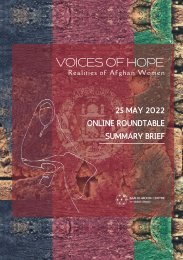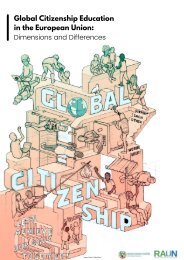Europe and North America Regional GCED Network
The report “Europe and North America Regional GCED Network” is based on a research project funded by Asia-Pacific Centre of Education for International Understanding (APCEIU) and Ban Ki-moon Centre for Global Citizens (BKMC) led by Lynette Shultz (Centre for Global Citizenship Education and Research, University of Alberta) and Massimiliano Tarozzi (International Research Centre on Global Citizenship Education, University of Bologna) as Principal Investigators. The research team was composed of Carrie Karsgaard and Carla Inguaggiato, with the support of Kester Muller and Francis Owusu.
The report “Europe and North America Regional GCED Network” is based on a research project funded by Asia-Pacific Centre of Education for International Understanding (APCEIU) and Ban Ki-moon Centre for Global Citizens (BKMC) led by Lynette Shultz (Centre for Global Citizenship Education and Research, University of Alberta) and Massimiliano Tarozzi (International Research Centre on Global Citizenship Education, University of Bologna) as Principal Investigators. The research team was composed of Carrie Karsgaard and Carla Inguaggiato, with the support of Kester Muller and Francis Owusu.
You also want an ePaper? Increase the reach of your titles
YUMPU automatically turns print PDFs into web optimized ePapers that Google loves.
Research Design<br />
<strong>and</strong> Methodological<br />
Procedures<br />
This chapter presents the research design <strong>and</strong> methodological procedures<br />
for analyzing the <strong>GCED</strong> network in <strong>Europe</strong> <strong>and</strong> <strong>North</strong> <strong>America</strong>. This chapter is<br />
composed of seven parts. First, the main objectives of the study are described,<br />
highlighting the connections with the preliminary part of the research. Next,<br />
the overall methodological approach is introduced. Third, the main features of<br />
the social network analysis approach are described. Fourth, digital methods<br />
are outlined. Fifth, the main procedures for data collection <strong>and</strong> research ethics<br />
procedures are detailed. Sixth, the main steps followed for data analysis are<br />
presented. Finally, the chapter concludes with a summary.<br />
1) A Relational Approach to the <strong>GCED</strong> <strong>Europe</strong> <strong>and</strong> <strong>North</strong> <strong>America</strong> <strong>Network</strong><br />
The present study aims at underst<strong>and</strong>ing the characteristics of the <strong>GCED</strong><br />
network in <strong>Europe</strong> <strong>and</strong> <strong>North</strong> <strong>America</strong> (NA). We map multiple ties among active<br />
promoters of <strong>GCED</strong> in <strong>Europe</strong> <strong>and</strong> NA, where promotion is understood broadly<br />
to include funding, education, programming, policy development, networking,<br />
research, <strong>and</strong> teacher education.<br />
To this end, we adopted two parallel methodological approaches based<br />
on a relational approach to research. First, we conducted a social network<br />
analysis (SNA), focusing on a closed list of policy actors where participation<br />
in the network is defined by very specific criteria (which are explained in detail<br />
in sections 5.1 <strong>and</strong> 5.4). The other component of our study applies digital<br />
methods to trace the links between <strong>GCED</strong> actors on both (a) organizational<br />
websites <strong>and</strong> (b) Twitter, using crawler techniques.<br />
This study constitutes a continuation of the preliminary research-based<br />
Montreal meeting, where we carried out a social network analysis exercise<br />
with the meeting participants. The present research allows us to overcome<br />
the limitations present in this preliminary research. The Montreal research only<br />
allowed us to map the connections among 12 organizations that are key policy<br />
actors in <strong>GCED</strong> implementation <strong>and</strong> promotion. That typology of research<br />
design (egocentric) <strong>and</strong> based on open-ended name generator questions<br />
presented some limitations. An egocentric network design is when selected<br />
022ㆍ023


















